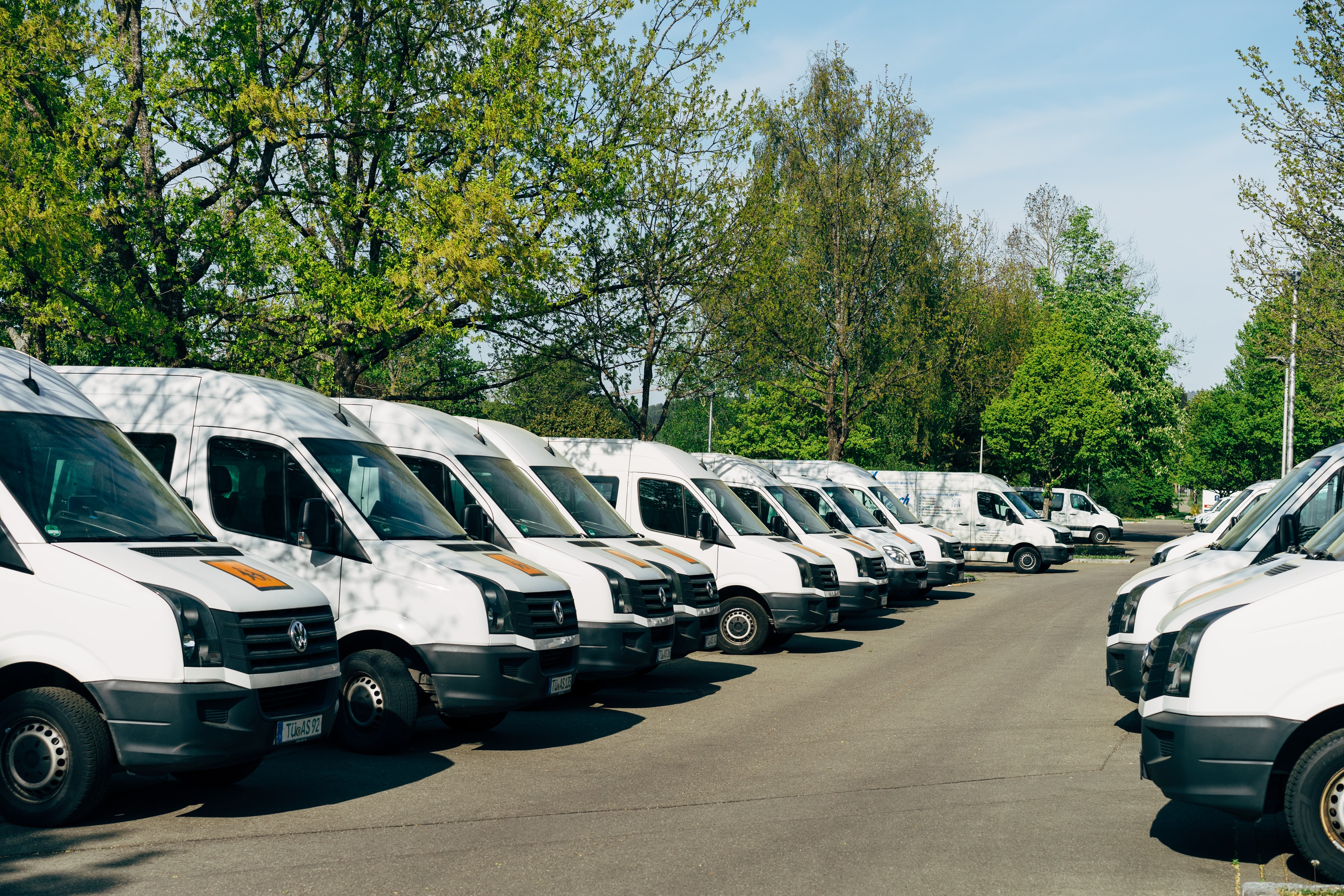
Célian Chesnoy
Sales & Marketing Manager France
February 3, 2023
Acquiring a car fleet: elements to consider
Acquiring a car fleet is never simple: which brand to choose, how many vehicles, which type, which model, buy or lease... The questions are numerous. In this article, we provide some food for thought to help you with the acquisition of a company fleet.
Are you about to acquire a car fleet for your company? Then this article was designed for you. Together, we will study the different elements to consider before taking the plunge. This short guide will allow you to make your choice with confidence. However, it is not limited to future fleet owners: you may also be concerned if you want to expand your current fleet, or if you need to replace some of your vehicles that have become obsolete.
1) Acquiring a car fleet: future buyers
a) Rent, or buy?
The first question you will probably ask yourself is this: is it more worthwhile for you to rent your vehicles, or to buy them? Well, there is no right answer: it all depends on your needs. Each option has its advantages, but it is important to study the ones that suit you best. If you plan to change vehicles regularly, leasing is probably more worthwhile. On the other hand, if you plan to keep the vehicles for the long term, becoming a buyer may be more advantageous. This choice also depends on the vehicles you want to use, and many other factors. Also study the different suppliers: perhaps you will realize that the after-sales service of some leaves something to be desired, and this may be a factor in your choice.
b) The vehicle
To set up your fleet, you must define the vehicle(s) that your company needs: logical. If you are a carrier, heavy goods vehicles will probably be preferred. A construction expert will rather use vans to move equipment and construction tools. Take the time to discuss it with the people in your company who will be directly involved in the use of these vehicles, to study their needs.
c) Recruitment
Your vehicles are not going to drive themselves (maybe one day, but not right away). You, therefore, need to recruit your future drivers. Don't hesitate to be selective. These people will have responsibility for your vehicles. You must, therefore, trust them completely. Don't be tempted to take the first person who walks through your door: the selection must be rigorous.
See this article to learn more about good selection methods.
If you already have drivers, don't hesitate to listen to their opinions, their needs, because once again, it is to them that you entrust your assets.
d) The Total Cost of Ownership
You must calculate the TCO before embarking on the purchase of a fleet. You can refer to this article to do so, but here are some elements to take into account:
Car insurance: You will be required to insure your vehicles. Don't forget to conduct a rigorous study of the different insurance options and insurers available to you.
Fuel costs: Your fleet will consume fuel. Daily. It is, therefore, important that you establish a consumption budget. This budget will have to be re-evaluated after use, since it will be relevant to adapt it to the actual consumption of your fleet.
Maintenance costs: It is important for you to find out about the maintenance operations to be carried out on your fleet: to start with peace of mind, we advise you to set up a preventive maintenance cycle in advance. We have written an article on the interest of setting up this type of cycle, and I will let you consult it to learn more about this subject.
e) Fleet management software!
Managing your vehicle fleet shouldn't be complicated. That's why fleet management software exists!
This fleet management software enables you to save money on your variable expenses (maintenance, fuel, etc.), while making your life easier. Indeed, it allows you to monitor your fleet, and the information related to it, in real time. All your documents are centralized to facilitate the tracking of invoices, consumption, etc. We provide you with detailed reports on the information that interests you, so that you are able to make quick and impactful decisions.
2) Acquiring a vehicle fleet: expanding your fleet
a) Review the previous points:
Start from scratch! (well, almost, use the experience gained from managing your first fleet). Indeed, when you want to expand your fleet, you can rely on the previous points, which remain relevant. However, you can also rely on some additional elements.
b) Your experience:
If you are expanding your fleet, it is because your current fleet is no longer sufficient. Before proceeding with the purchase of new vehicles, you can analyze the performance of your current vehicles: are you satisfied with your fleet? Is the brand you are using too regularly subject to maintenance?
c) The experience of your drivers:
Drivers know company vehicles. Perhaps better than fleet managers. So take their opinion into account: they can provide you with relevant insights into the needs of your company. You can organize this information gathering in the form of a questionnaire.
d) Your needs:
Why do you want to expand your fleet? Are you using your current fleet to its maximum capacity? What do you expect from these new vehicles? Does the budget you want to allocate to this fleet expansion correspond to the estimated TCO (to calculate it, go to this article)? These are all questions that you need to ask yourself before placing an order.
Conclusion
Of course, this list is not exhaustive. To acquire a vehicle fleet, many elements must be considered. Elements sometimes specific to each company. However, those mentioned above can help you in your approach, and allow you to see things a little more clearly.
To help you, and particularly in the case of a vehicle fleet expansion, you can rely on our fleet management software. Indeed, we allow you to quickly calculate your TCO per vehicle, and therefore to study the performance & profitability of your current vehicles. The in-depth analysis of the data collected via our tags that we offer gives you the keys to better identify your needs, and the vehicles that best meet them.
However, choosing our fleet management software from your first vehicles is also wise. This will allow you to control your costs (especially variable costs), and improve the lifespan of the vehicles.


